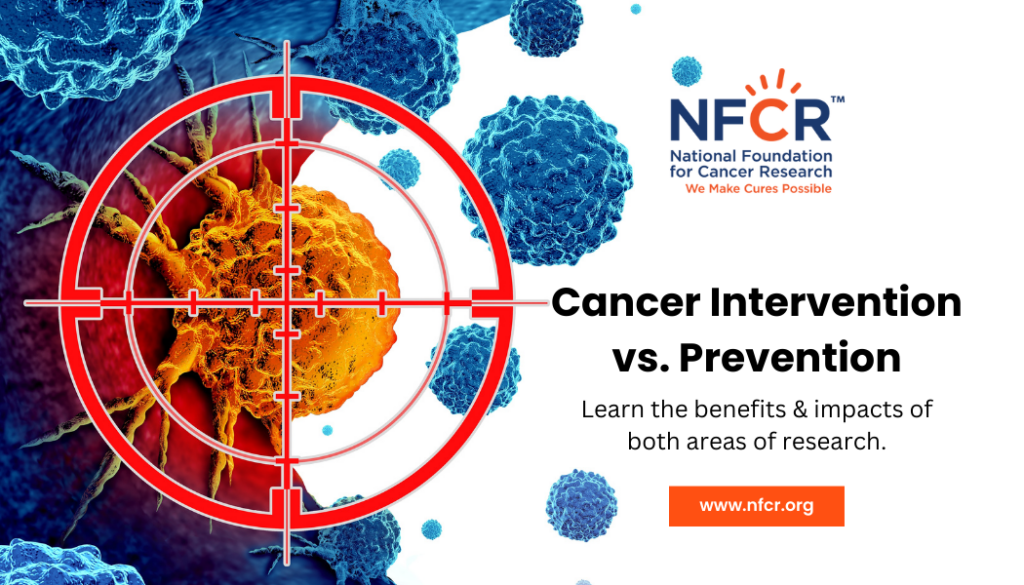Early Detection and Prevention
What is Early Detection and Prevention?
Early Detection and Prevention research aims to find improved ways to detect cancer in its earliest stages, identify factors that either raise or lower cancer risk in individuals and groups, and intervene in early-stage cancer treatment at the right time with the right approach.
Significant areas of focus in this field include:
- Developing and validating new screening tests.
- Determining optimal screening intervals for recommended exams.
- Identifying intervention targets like viral causes or lifestyle choices that impact cancer risk.
- Testing innovative drugs to treat and intervene in early-stage cancers to ensure long-term survival.
By developing and improving screening tests to find and diagnose cancer at its earliest, most treatable stages, scientists are working to reduce overall cancer risk and prevent the disease from developing. We will kill cancers before they kill people.
NFCR's Current Early Detection and Prevention Focus
A little over 2 million new cancer cases are expected to be diagnosed in the US in 2024 – 20% of new cancer diagnoses come from cancer survivors. One of NFCR’s current focuses is to conduct more research on early cancer detection and early-stage cancer intervention and treatment. We are supporting a group of leading-edge scientists pioneering and investigating innovative approaches to stop cancers at their early stage, such as stage zero, and to detect them before new cancer happens.
Our goal is to reduce cancer incidences and increase cancer survivors. Through a focus on the detection and eradication of the first cancer cell, we can stop cancer before it starts!
NFCR IMPACTS IN EARLY DETECTION AND PREVENTION RESEARCH
- NFCR has funded research on biomarkers and imaging techniques to improve early detection of cancer, leading to advances like the discovery of altered methylation patterns in precancerous cells.
- Through its public education and awareness efforts, NFCR promotes prevention behaviors like healthy eating, exercise, and recommended cancer screenings that can reduce cancer risk and incidence.
- The Foundation provides funding for chemoprevention research investigating the effectiveness of natural compounds (e.g. antioxidants) and drugs to prevent cancer, furthering the development of risk-reducing options.
NFCR-Supported Researchers Working on Early Detection and Prevention
Siddhartha Mukherjee, M.D., D.PHIL
Columbia University
Azra Raza, M.D.
Columbia University















